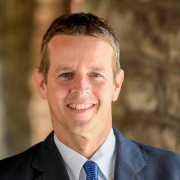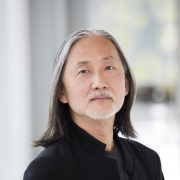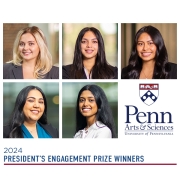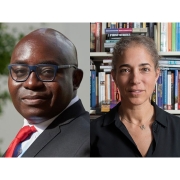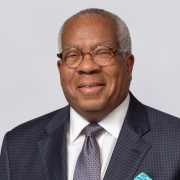Penn Creates Evolution Cluster for Collaboration Across Disciplines
A quantitative understanding of evolutionary processes still stubbornly evades researchers across the natural sciences, social sciences, humanities, and computational mathematics. Penn’s new Evolution Cluster—officially titled the Evolution of Dynamical Processes Far from Equilibrium Cluster—presents an innovative model for organizing research, teaching, and learning in ways that will have broad implications across the University.
Conceived by Richard Schultz, associate dean for the natural sciences in the School of Arts and Sciences (SAS) and the Charles and William L. Day Distinguished Professor of Biology, and led by Randall Kamien, the Vicki and William Abrams Professor in the Natural Sciences, the Evolution Cluster is a joint effort by SAS faculty to create an academic hub that formalizes the interdisciplinary collaboration required to solve the complex theoretical challenge.
New hire Eleni Katifori, will be based in the Department of Physics and Astronomy. Her research on the vasculature of leaves brings topology, geometry, and physics to bear on plant biology. The second new hire, Erol Akçay, whose work on the evolution of social behaviors incorporates ecology, psychology, and linguistics, is in the Department of Biology.
Before Akçay and Katifori were hired, evolutionary biologist Alison Sweeney joined the Physics and Astronomy Department as a prototype hire for the Cluster. Her research is focused on the interplay between the physics of the biological structures formed with a reflective protein, and the role they play in animals’ evolutionary history.
In the future, researchers hope to develop graduate and undergraduate courses offered in conjunction with the applied mathematics and computational science department or the materials research lab—which itself has a 50-year history of multidisciplinary collaboration.
Evolution is a topic that could resonate across the University, with life scientists, physicists, economists, linguists, and web designers bringing new perspectives to the table. Faculty from the Law, Wharton, and Perelman schools could also benefit from and contribute to the Cluster.
